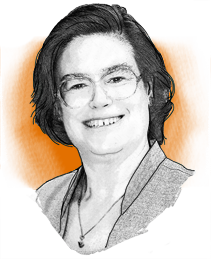August 21, 2018 PAO-M08-18-NI-019
The magnetic stimulation of nerve cells in different parts of the brain using a noninvasive device —developed by Jerusalem-based Brainsway — has previously received CE marks for the treatment of several disorders, including chronic pain, autism, bipolar disorder, schizophrenia Alzheimer’s and Parkinson’s disease.
The US Food and Drug Administration recently granted de novo clearance to Brainsway’s transcranial magnetic stimulation (TMS) system, the first noninvasive device treatment for obsessive-compulsive disorder. The device is intended for use in conjunction with medication and psychotherapy.
This clearance is the second for Bransway in the US. The TMS device was previously given marketing authorization by the FDA in 2013 for use in patients suffering from treatment-resistant major depressive disorder. The latest decision was based on the results of a study, which tested subjects based on an OCD severity score. Nearly 40% of patients responded to the Brainsway device with reductions in severity greater than 30% compared to 11% that responded to the device when switched to a sham setting (the same amount of noise and sensation without the magnetic stimulation).
Brainsway scientific founder Abraham Zangen, Professor of Neuroscience and Chair of the psychobiology brain program at the Ben-Gurion University of the Negev in Beersheba, Israel, explained, "the brain region targeted with the BrainsWay H7- coil is the anterior cingulate cortex, a region known for many years to be centrally implicated in the pathophysiology of OCD. This Deep TMS H7-coil is different from the BrainsWay H1-coil used for treating depression that targets primarily the lateral pre-frontal cortex.”
According to Brainsway President and CEO Yaacov Michlin, more than two million adults in the US suffer from OCD. He added that the latest clearance “establishes Deep TMS as a platform technology that will provide treatments for additional psychiatric indications, subject to successful completion of our currently ongoing multi-center studies and regulatory approvals.”

Dr. Challener is an established industry editor and technical writing expert in the areas of chemistry and pharmaceuticals. She writes for various corporations and associations, as well as marketing agencies and research organizations, including That’s Nice and Nice Insight.